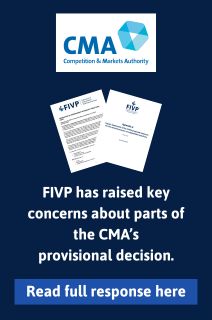
In today’s digital age, protecting client confidentiality is more important than ever. From contact information and bank details to pet medical records and diagnostic results, the processing of all personal data is protected by UK law. But is your practice doing enough to keep this sensitive information safe and secure?
Why is it important?
Veterinary practices must prioritise data security to avoid legal penalties, build trust and establish strong relationships with clients. Clients are more likely to remain loyal and continue using your services if they trust that you are handling their personal information securely. Applying strong data protection measures, therefore, not only protects client data, but also your practice data, and helps to improve quality of care.
What’s the law?
The primary laws protecting personal data in the UK are the UK General Data Protection Regulation (GDPR) and the Data Protection Act 2018. The DPA 2018 is the Government’s implementation of the GDPR and controls how data is used by organisations. As a data holder, it is your responsibility to ensure the use of client information is lawful, justified and fair.
What steps can I take?
1. Secure your data
One of the most important steps you can take towards protecting your client’s data is to ensure that it is securely stored. Provide rooms with locks and cabinets, implement a clean desk policy (encourage your team to clear their workspaces of documents and notes) and provide adequate paper shredding facilities. Having measures like these in place can help prevent unauthorised access to data and help maintain client confidentiality.
2. Issue privacy notices
A privacy notice informs clients how their personal information will be handled and used. The notice should explain why your practice needs the data, how it will be collected and stored, and clients’ rights to access it. It should also include your practice’s contact details or data protection officer so your clients can seek further information. Display the notice on your practice website, in your reception area (this can be a concise version of the notice) and on client registration forms.
3. Maintain client confidentiality
The vet-client relationship is built on trust, and the whole practice team, including support colleagues, are duty bound to maintain confidentiality and to not disclose any information about a client or an animal to third parties without proper authorisation. Under RCVS guidance, this includes information given by the client or revealed by clinical or post-mortem examination. Exceptions to this rule might be if you have concerns about animal welfare or if there is public interest. Veterinary professionals should use their own judgment about how and when to disclose this information.
4. Improve cybersecurity
Educate your team on data security best practices to protect against cyber threats, covering areas such as safe browsing, phishing attempts and password hygiene. Encourage the use of complex passwords, including a mix of characters, and ask your team to update them regularly. It’s also important to update your operating systems, applications and security software often, as the patches help to address vulnerabilities that hackers exploit.
The bottom line
Data protection is essential for veterinary practices to build and maintain client trust, avoid legal penalties and prevent damage to the practice’s credibility. By issuing clear privacy notices, upholding client confidentiality, and enhancing cybersecurity measures, you can ensure the security of personal data, ensuring a safe and professional environment for clients and their pets.
Sources:
A practical guide to data protection – Veterinary Practice (veterinary-practice.com)
General Data Protection Regulation (GDPR) guide | British Veterinary Association (bva.co.uk)



